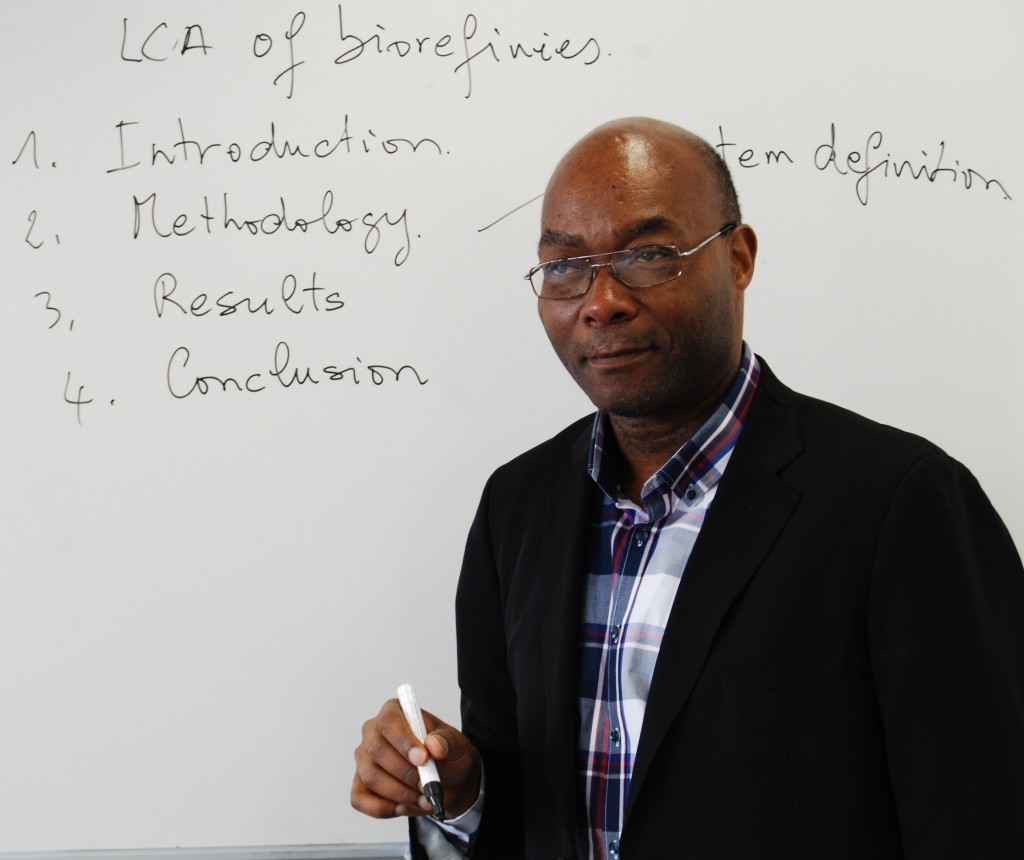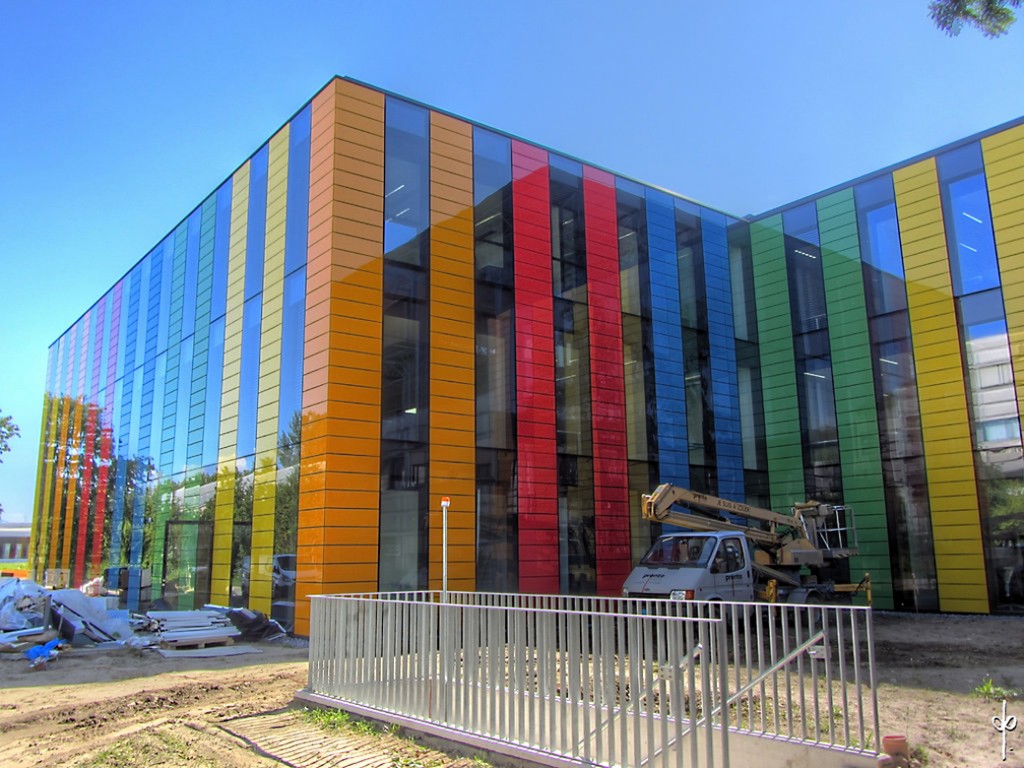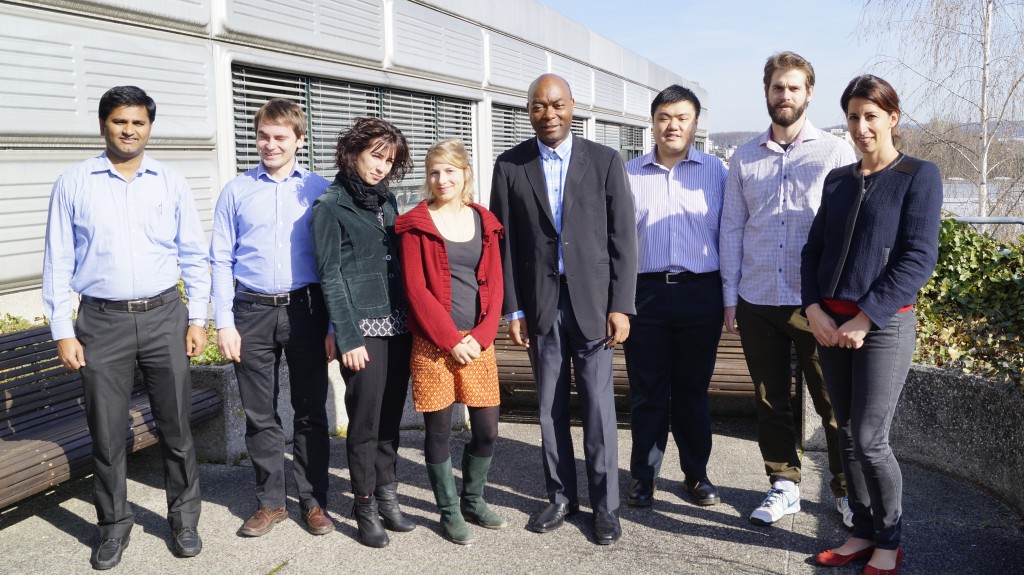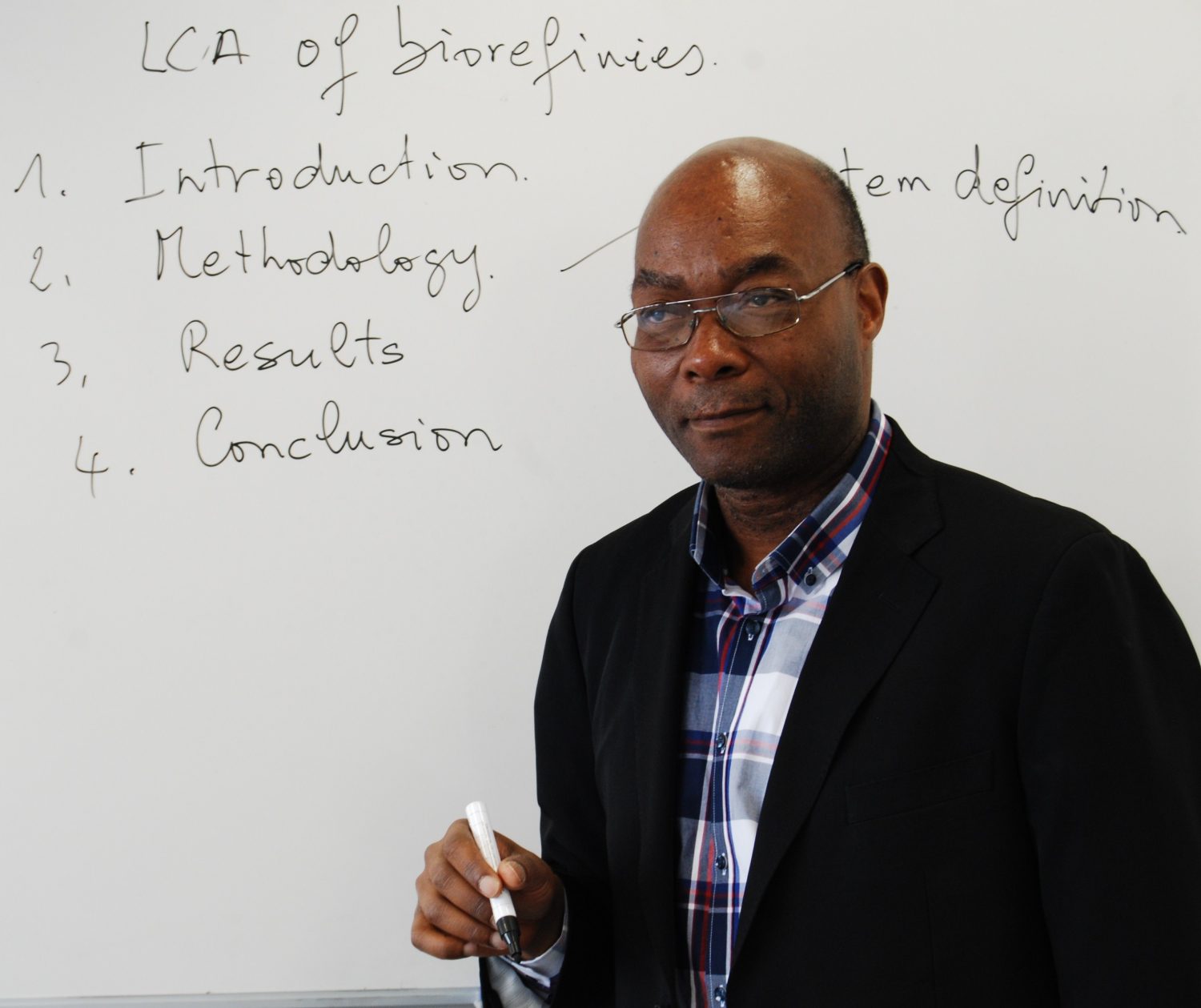African scholar Edgard Gnansounou leads one of the world’s most renowned research institutions

BY KOSSI GBEDIGA
École Polytechnique Fédérale de Lausanne (the Swiss Federal Institute of Technology in Lausanne), EPFL, is arguably the European equivalent of the Massachusetts Institute of Technology. This institution initially known as École Spéciale de Lausanne was founded in 1853.
In recent years, the three most widely-respected university rankings in the world, QS World University Rankings, Academy Ranking of World Universities, and Times Higher Education World University Rankings, ranked EPFL number 2, number 1 and number 3 respectively in the field of Engineering and Technology in Europe in their rankings, saying that it competes with Oxford, Cambridge, Imperial College of London and its sister ETZ Zurich for the European top five spots in Engineering and Technology. This year Times Higher Education World University Rankings ranked EPFL the overall best university among the institutions less than 50 years old. EPFL boasts a student population of 5,418 undergraduates and 4,925 post-graduates, according to the 2016 statistics. And the Bioenergy and Energy Planning Research Group (BPE) of this prestigious institution is headed by a Beninese researcher, Professor Edgard Gnansounou.

The BPE is a small research group of the Swiss Federal Institute of Technology in Lausanne that works on energy planning in general and especially on techno-economic and environmental assessment of bioenergy. Its activities comprise fields such as experiments on the conversion of agricultural residues into bioethanol; life-cycle assessment of biofuels; and economic evaluation of various pathways of bioenergy. Bioenergy, in essence, is the energy for industrial or commercial use that is derived from biological sources such as plant matter or animal waste. As director of this research unit, Prof. Gnansounou conducts the research works of the group and is responsible for its management. As professor, he gives courses on Energy systems at the Bachelor, Master and doctoral levels.
Professor Gnansounou, 61, did not rise to the position of BPE director thanks to any form of Affirmative Action, a promotion method not used in Switzerland. He earned the position in 2011 after climbing the ladder of academic excellence since 1976, the year he graduated with honors from Lycée Béhanzin, an elite high school established in 1913 in his home country Benin by the colonial administration, and 1991 when he received his Ph.D. in science from EPFL.

It appears academic excellence runs in the family, for Prof. Gnansounou’s father, Marcel Gnansounou, was one of the early intellectuals of Dahomey—the country’s initial name before it was renamed Benin in 1974. He self-taught himself to become an elementary school teacher, and later, thanks to correspondence courses, a certified high school History & Geography teacher, a prime-grade teach who taught in the elite high school Lycée Béhanzin that his son Edgard would later attend. At the time of his death, Marcel Gnansounou was a candidate for the highest degree in the French-speaking academic world, Agrégation.
Prof. Edgard Gnansounou walked right in his forefather’s footsteps. His academic achievements at EPFL where he has taught and conducted research for more than three decades, and outside the prestigious school are too vast to be listed in this article. It just might suffice to mention, besides dozens of writings and the management of research projects, that he was a visiting researcher at the Thayer College, Dartmouth School of Engineering, in Hanover, New Hampshire, U.S.A., in 2002; founder of the Swiss private company ENERS—Energy Concept Sarl (2004-2014); external collaborator of the EPFL Energy Center (2007-2013); visiting researcher at Polytech of Clermont-Ferrand, University Blaise Pascal, in France (2008); director of the Laboratory of Energy Systems (EPFL-LASEN—2003-2009), and Invited Professor of the African University of Science and Technology of Abuja, Nigeria (2011). This is not to mention the management and realization of research projects and international cooperation with developing countries in the field of energy research in West Africa, Southern Africa, China, Brazil, India, and Venezuela, or his serving on the board of various reviews and journals.
He’s also credited with two books on subjects unrelated to bioenergy, his specialty: “L’Afrique face à la mondialisation—Construire l’Afrique des lumières autour d’une éthique de dignité” published in 2005, and “En finir avec le Franc des colonies françaises d’Afrique” published in 2012. They are obviously in French, but unofficial English titles could be “Africa in the face of globalization” and “Doing away with the Franc of French colonies of Africa.” Prof. Gnansounou holds the belief that life is the crossroads of different disciplines:
“With our education we are all able to contribute reflections outside our specialties and bring out our contribution in those issues that pave the way to the future. Just as bioenergy should not be left to energy specialists, economy is not the monopoly of economists. Our life is at the crossroads of different disciplines and we should be educated enough to integrate them in a holistic way in order to think about changes, about positive changes! I may be a bit pretentious! Don’t you think?”
When we asked Prof. Gnansounou how he feels about being the first and only black professor/researcher at EPFL, he showed no signs of being “pretentious.” Rather, he answered modestly as most great achievers do:
“What is more important is my scientific contribution. In that sense I am not so different from my colleagues. The most important criterion is the pursuit of excellence.”
He admitted, as we pressed on, that his experience is a particular one, having come from West Africa to EPFL which he described as a “cosmopolitan university” in what he called “this special region of the world,” and said he is proud of his journey.
Despite his long stay in Switzerland, since the age of 20 when he got admission to EPFL to further his studies, Prof. Gnansounou has not lost touch with home. He says he spends at least one month in Africa every year, on vacation or to work on projects related to his contributions as a diasporan African. A native of Cote d’Ivoire where his parents—of Benin origin—resided until 1958 when he was barely one-year-old, Prof. Gnansounou visits Cote d’Ivoire as well, having relatives such as his big sister Louise Sikatin Gnansounou who lives there.
Prof. Gnansounou strongly believes that diasporan Africans have a role to play in the development of Africa.
“The Diaspora is a particular human resource for African countries. People in the African Diaspora who are still in contact with their countries of origin are between several cultures. They are in an ideal position to play the role of intermediaries and serve as bridges to take advantage of the opportunities available in the countries where they live to benefit their countries of origin.”
In that respect, the Beninese Diaspora in Switzerland that Prof. Gnansounou presides has initiated a project in collaboration with the Benin government and Benin’s workers’ unions to develop a “consensual dialogue in order to reduce the frequency and length of strikes in the country.”

“The children are our future,” says a popular song. Prof. Gnansounou tells “The African Magazine” his five children, Femi, Shadya, Lea, Maeva and Vinagnon, all of whom are born in Lausanne (Switzerland) but have both Beninese and Swiss citizenships, are proud of their African roots even though they live permanently in Switzerland. His youngest child, Vinagnon, seven, gets more exposure to the continent by traveling to Africa with him and his wife (Fatou Diop Gnansounou) every year. The other children have not benefited from the same opportunity, says Dad, adding:
“However, they know that if they want to, they can go and discover the origins of their parents. The call of Africa inside their heart may be sleeping now, waiting for the good time to wake up.”
Prof. Gnansounou stresses that he gets his children involved in the activities organized by the African Diaspora in Switzerland. He also refers to his books as a useful tool to nurture the children’s interests in their roots: “Books are witnesses of our efforts to give the next generations a better chance to improve theirs.”


